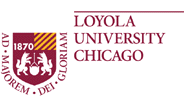

 |
 |
Findings and Recommendations Regarding Student Maltreatment
Student maltreatment is of special concern at SSOM. Results from our graduation questionnaire typically indicate levels of mistreatment slightly above the national average. Furthermore, we distributed a survey to the students and our results indicate that students are reasonably good at assessing the severity of faculty and resident behavior. In fact, they included a sizable number of written vignettes of maltreatment that they had experienced or witnessed. These cases were fairly disconcerting. Hence, we concluded that students are mistreated at unacceptable levels but seldom report such incidents through the appropriate administrative channels, probably due to fear of reprisal.
We believe that both corrective and formative responses to this situation are warranted. That is, reporting of mistreatment should be facilitated but most efforts should be directed to the implementation of educational measures to prevent future incidents.
I. Reporting Mechanism
There are several concerns that must be balanced in devising an improved mechanism for reporting maltreatment. On the one hand, it is important to create a mechanism that will be less threatening to students to raise concerns of maltreatment. On the other hand, this mechanism should also provide significant feedback and discussion prior to the initiation of any formal action so as to prevent the registering of complaints that are easily resolved misunderstandings or better handled through direct confrontation. Thus, a multi-tiered system is in order. For instance, the student would approach an advocate and then the complaint might be forwarded to a three-member interdisciplinary panel.
(1) The Advocate - This person would be a class officer, a designated faculty member, or an administrator who has a reputation as someone who is sensitive to student concerns. This person would provide a sympathetic ear to the student's concern and explore the student's options. We anticipate that the student and advocate would usually choose to proceed no further with most complaints. Nevertheless, the student would likely leave with strategies for dealing with the situation.
(2) The Three Member Panel - If the advocate or student wished a second opinion, s/he could consult a panel that is designed to hear complaints. They could first be consulted informally to determine if further action is worth pursuing. If they agree that it is a serious complaint, the panel could convene a formal hearing. (This formal hearing would obviously include notifying the faculty member of the complaint and providing an opportunity to respond). The panel would send its findings and recommendations to the Dean.
The panel should be broadly representative of the faculty, administration, and student body.
The advocacy system allows that the approach to the panel could be made while the student remained anonymous. Only when a formal proceeding was begun need the identity of the student be known and the faculty member or other person who is the object of the complaint be notified.
The advocacy system provides the student with support regardless of the level at which the student's concerns are ultimately addressed.
II. Maltreatment Education
The focus of student maltreatment efforts should be the clinical departments. It is clearly within the clinical environment that the informal curriculum is perpetuated among faculty, residents and students. Because clinical faculty participate as student advisors and teachers in the IPM course, the development of the portfolio assessment activity may raise awareness to some extent in the clinical units. However, such benefits will be "hit and miss" and are unlikely to reform the culture of clinical departments that have a high threshold of tolerance for unacceptable behavior toward students. On-site efforts are needed.
Each clinical department should be responsible for developing an educational program for its faculty and residents. This program would include behavioral objectives and individuals should be held accountable for achieving these objectives and outstanding achievement in these areas recognized. The services of human resources may be helpful as they are experienced in providing programming regarding sexual harassment and cultural sensitivity. But, as physicians are the most effective educators of physicians, such programs should be co-taught.
Return to Professionalism Committee Home Page
©2001 Loyola University Stritch School of
Medicine (SSOM). All rights reserved.
This document is intended for viewing by authorized personnel within SSOM only.